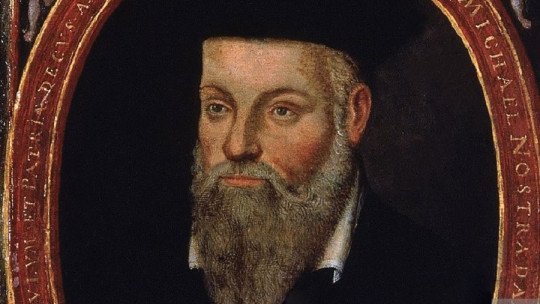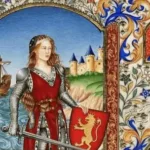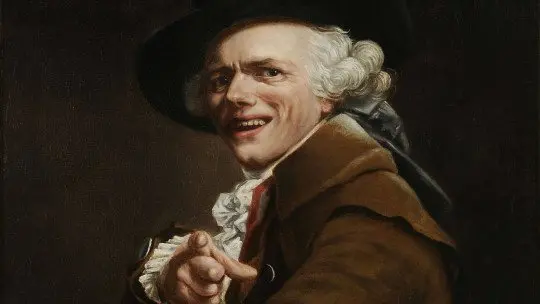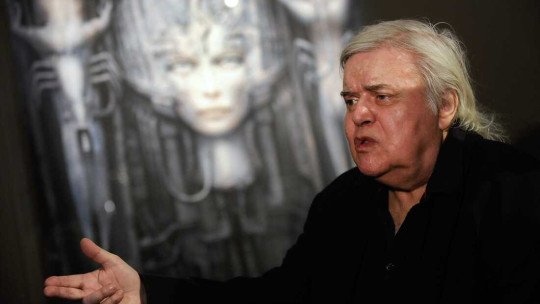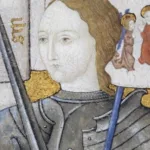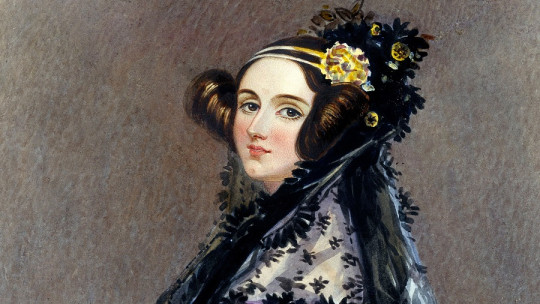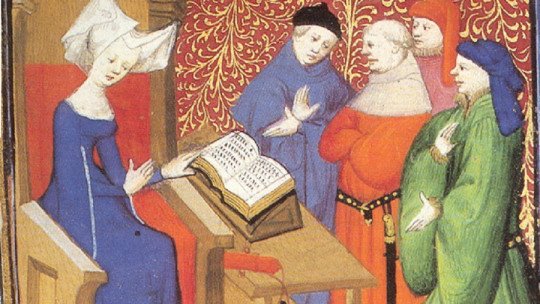In the year 2000, many people believed that the world was ending. Famous is the case of designer Paco Rabanne, who sadly died last February; the couturier interpreted one of the well-known prophecies of Nostradamus, the most famous astrologer in history, as an imminent end of the world
The prophecy in question stated that, in the seventh month of the year 1999, the “King of Terror” would fall upon the world. Rabanne proclaimed that the Russian space station Mir would collapse on France, which would perish in the flames and, with it, the rest of the world.
We all know that the prophecy, if this was its meaning, was not fulfilled. However, the anecdote served to put the names of Paco Rabanne and Nostradamus on everyone’s lips; Many people who were unaware of the existence of the astrologer began to search for information about his life and his prophetic work.
Who was Nostradamus? What exactly do his supposed prophecies say? Have any of them really been fulfilled? In this article we are going to try to rescue the real character from the legendary one. Join us for one of the most exciting lives: that of Michel de Nôtre-Dame, better known as Nostradamus.
Brief biography of Nostradamus, the most famous fortune teller in history
Become a true legend, his prophecies are invoked by everyone, but, paradoxically, they are still practically unknown. Let’s dig a little deeper into the life of this interesting character.
The birth of our character could not have occurred at a better time: the 16th century, especially its second half, is the century of astrologers and fortune tellers. All the powerful of the time were truly obsessed with the language of the stars convinced that the designs of God were hidden in them and, therefore, of their own existence and that of their people.
Famous is the case of Philip II, a Catholic monarch par excellence who, however, gathered in his palace of El Escorial an important esoteric circle, whose main objective was astrological and alchemical studies. Also notable is the case of Catherine de’ Medici, queen of France due to her marriage to Henry II, who was, precisely, one of the protectors of Nostradamus.
And what role did the Church play in all this? Did the Papacy consent to such a “deviation” from official dogmas? In reality, Christian doctrine was especially hostile to everything that had to do with divination and prophecy, since unraveling the future was the same as trying to discover God’s designs.
In other words, an exercise in complete arrogance. Thus, The Church dedicated itself, especially through its most powerful vehicle, the Holy Office, to tracking down any practice in which any hint of “magic” or prophecy was sniffed out Philip II himself, by the way, had problems with the Inquisition, which was determined to analyze the magnificent library that the king had in El Escorial, and which contained numerous volumes related to astrology, alchemy and divination.
Despite everything, divination practices proliferated, in part thanks to the support of the monarchs. We have already commented how Catherine de’ Medici protected Nostradamus and took a keen interest in his prophecies. On the other hand, it is necessary to take into account that, in the 16th century, intellectuals had to study a series of disciplines that, for our 21st century mentality, would be mere pseudosciences. At that time, any self-respecting scholar was interested in the stars and magic in the same way as in science and medicine, since they considered them part of the same source of wisdom.
The first steps of a myth of esotericism
Nostradamus was born as Michel de Nôtre-Dame in French Provence, into a family of Jewish converts, which, a priori, already made him a suspect of heresy before the Church. However, it was not this condition that earned him his expulsion from the University of Montpellier, where he had enrolled to study medicine, but rather his passing as an apothecary.
At that time, One of the conditions for entering higher education was not having previously done any manual work , considered unworthy of nobles and intellectuals. Apothecary was an occupation that fell within this classification, so, despite the fact that Michel had successfully completed his studies at the Trivium (grammar, rhetoric and dialectic), an essential requirement to access higher education, the University of Montpellier closed his access.
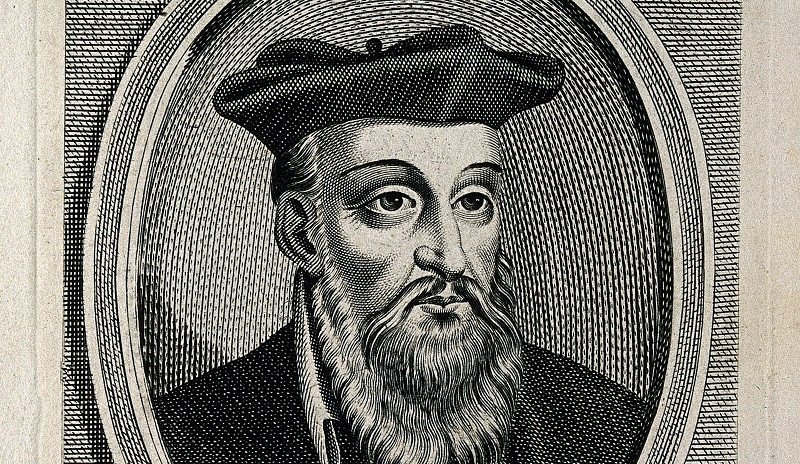
The year 1547 is crucial for our character, since it is then when he marries for the second time (his first wife, along with his children, have died due to the plague). His second wife, Anne Ponsarde Gemelle, is a very rich widow who is going to solve his financial problems: from then on, Michel will be able to fully dedicate himself to what he considers his “vocation”, prophecy.
Coveted throughout France
In the year 1550 his first almanac was published, reflecting the events that, according to him, were going to take place during those twelve months. The work is a resounding success, and Michel, who is already becoming known with his Latinized surname, Nostradamus, begins to rub shoulders with the most important families around him. The rise of interest in astrology and divination means that Nostradamus soon acquires a large number of clients to satisfy, for whom he performs horoscopes and divinations.
Much has been said about the work of Nostradamus and whether, really, his prophecies were caused by true gifts of divination or whether, on the contrary, they were mere hoaxes to attract the wealthy classes. Some historians see in Nostradamus’s prophecies an ambiguity made expressly , which means that its omens can be interpreted in different ways, according to the reader’s taste. Be that as it may, in 1555, the year of the publication of his work Les Prophéties (The Prophecies), the fortune teller has already become the most requested character; Among his clients is none other than the Queen of France.
Little was he able to taste his fame. In 1566, the gout that he had suffered from a very young age caused severe edema that ended his life on July 2. He was 62 years old.
Les Prophéties
This is his most famous work, for which he is known throughout the world. In Les Prophéties, Nostradamus expands the information in his almanacs and extends his predictions up to three centuries (that is, until the 19th century). Later, in the 1557 edition, he will expand his divinations by three more centuries.
Written in a mixture of French, Greek, Latin and Occitan, the quatrains containing the prophecies of Nostradamus have aroused equal parts admiration and rejection over the centuries. We have already discussed how his style is deliberately ambiguous, so the meaning can be “adapted” depending on who the reader is.
Some historians maintain that the author used this unclear language to free himself from possible persecution by the Inquisition, a shadow that was always over his head as a fortune teller and astrologer. In fact, in the introduction to his ProphetsNostradamus repeatedly invokes God as the only inspirer of his words and as the only one who is capable of knowing and changing events, thus making it very clear that What he did was neither heresy nor magic
But let’s show some example to see it more clearly. We began this article by commenting on the notorious case of Paco Rabanne and his personal interpretation of one of Nostradamus’s prophecies. The original text tells, more or less, that, in the seventh month of the year 1999, a “King of Terror” will come from heaven, who will bring the king of the Mongols to life. Before and after these events, Mars will reign with good luck. Can we really fathom in these verses the end of the world that Paco Rabanne so feared? Really, It is a text that can be interpreted in many different ways ; Its poetic and vague language gives rise to countless explanations.
Let us take another of the prophecies, which supposedly foretells the advent of the French Revolution. In this case, Nostradamus speaks of “the chosen monarch,” and then adds the words “fire, blood, decapitation.” We cannot deny that this quatrain is a little more “concrete” but, even so, it remains sufficiently ambiguous.
There are many other prophecies that, according to the followers of Nostradamus, have been completely fulfilled: the coronation of Napoleon as emperor (“An emperor who will be born near Italy…”), in quatrain 60 of the Century I; and even the attack on the Twin Towers, which would be prophesied in quatrain 97 of the 6th century (“Five and forty degrees the sky will burn, fire approaching the great new city…”).
Anyway; Nostradamus’s prophecies may be considered accurate… or they may not be. The only certainty is that, in his time, they aroused enormous interest, and that even now, in the 21st century, they continue to fuel theories.

